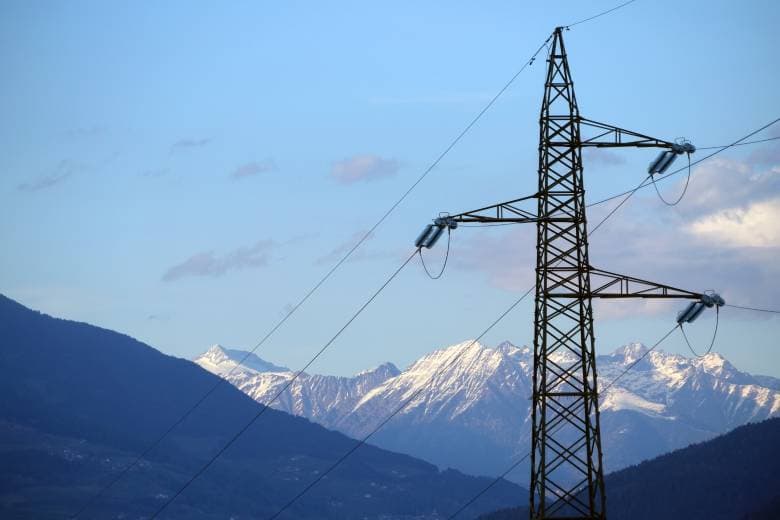How Austria wants energy firms to lower prices for customers

Austria has had high inflation rates for months, and even as they seem to be falling elsewhere, prices are still high in the Alpine republic. Now, the government wants to tackle the issue at its source: energy prices.
Inflation rates continue to be high in Austria, and the country's estimated rate for April is 9.8 percent, an increase from 9.2 percent in March, as The Local reported.
This makes Austria one of the most expensive countries in the eurozone, behind Luxembourg, Finland and Ireland. The issue is set to be a significantly important one in the 2024 elections and has certainly bumped voting intention for opposition parties, particularly the far-right FPÖ.
Now, Austria's ruling coalition, the centre-right ÖVP and the Greens, wants to hit back at inflation and is focusing on its primary driver in the country: energy prices.
During a press conference on Wednesday, Chancellor Karl Nehammer (ÖVP) and vice-chancellor Werner Kogler (Greens) presented a package of measures which includes incentives for energy companies that are quicker to pass on drops in wholesale prices to households and businesses.
READ ALSO: Five things that will get more expensive in Austria in May
According to the administration, suppliers should lower prices voluntarily; otherwise, they will face a higher profit tax. In addition, prices will be adjusted more frequently - at least every six months or even monthly for households with smart meters - allowing the drops to reach the final consumers faster.
"If energy suppliers do not immediately begin to reduce prices, then we, as the Republic, will also make them pay accordingly," Nehammer said. His goal, the chancellor said, is for the "most expensive supplier to reduce prices by a third".
The ÖVP leader argued that the skimming of profits, which should be implemented at the beginning of June, is based on the fact that wholesale prices fell from more than €500 per megawatt-hour (MWh) to less than €150 per MWh last year, while prices for private households more than doubled in the period.
More transparency in the food sector
When it comes to dealing with rising food prices specifically, the measures are similar to what had been rumoured in Austrian media earlier.
According to the administration, in the future, the government will publish the purchase prices for food trade in a "food transparency report". This already happens in Austria, but now the prices should also be made available and "comprehensible" to consumers.
READ ALSO: What is Austria’s JÖ Karte and how can you save money with it?
The chancellor didn't clarify how exactly that would benefit the population or bring prices down but emphasised the importance of having more transparency in the sector.
In the future, retailers will also have to make clear how much food it makes available as donations in kind to charitable organisations and how much of it ends up as waste.
Comments
See Also
Inflation rates continue to be high in Austria, and the country's estimated rate for April is 9.8 percent, an increase from 9.2 percent in March, as The Local reported.
This makes Austria one of the most expensive countries in the eurozone, behind Luxembourg, Finland and Ireland. The issue is set to be a significantly important one in the 2024 elections and has certainly bumped voting intention for opposition parties, particularly the far-right FPÖ.
Now, Austria's ruling coalition, the centre-right ÖVP and the Greens, wants to hit back at inflation and is focusing on its primary driver in the country: energy prices.
During a press conference on Wednesday, Chancellor Karl Nehammer (ÖVP) and vice-chancellor Werner Kogler (Greens) presented a package of measures which includes incentives for energy companies that are quicker to pass on drops in wholesale prices to households and businesses.
READ ALSO: Five things that will get more expensive in Austria in May
According to the administration, suppliers should lower prices voluntarily; otherwise, they will face a higher profit tax. In addition, prices will be adjusted more frequently - at least every six months or even monthly for households with smart meters - allowing the drops to reach the final consumers faster.
"If energy suppliers do not immediately begin to reduce prices, then we, as the Republic, will also make them pay accordingly," Nehammer said. His goal, the chancellor said, is for the "most expensive supplier to reduce prices by a third".
The ÖVP leader argued that the skimming of profits, which should be implemented at the beginning of June, is based on the fact that wholesale prices fell from more than €500 per megawatt-hour (MWh) to less than €150 per MWh last year, while prices for private households more than doubled in the period.
More transparency in the food sector
When it comes to dealing with rising food prices specifically, the measures are similar to what had been rumoured in Austrian media earlier.
According to the administration, in the future, the government will publish the purchase prices for food trade in a "food transparency report". This already happens in Austria, but now the prices should also be made available and "comprehensible" to consumers.
READ ALSO: What is Austria’s JÖ Karte and how can you save money with it?
The chancellor didn't clarify how exactly that would benefit the population or bring prices down but emphasised the importance of having more transparency in the sector.
In the future, retailers will also have to make clear how much food it makes available as donations in kind to charitable organisations and how much of it ends up as waste.
Join the conversation in our comments section below. Share your own views and experience and if you have a question or suggestion for our journalists then email us at [email protected].
Please keep comments civil, constructive and on topic – and make sure to read our terms of use before getting involved.
Please log in here to leave a comment.